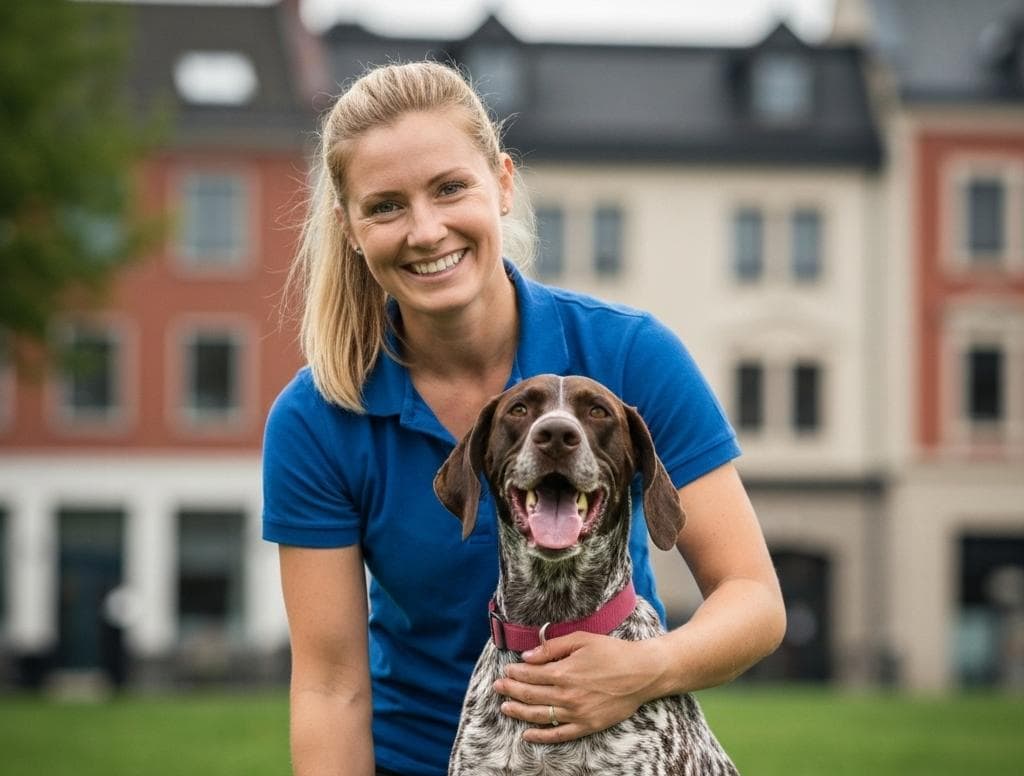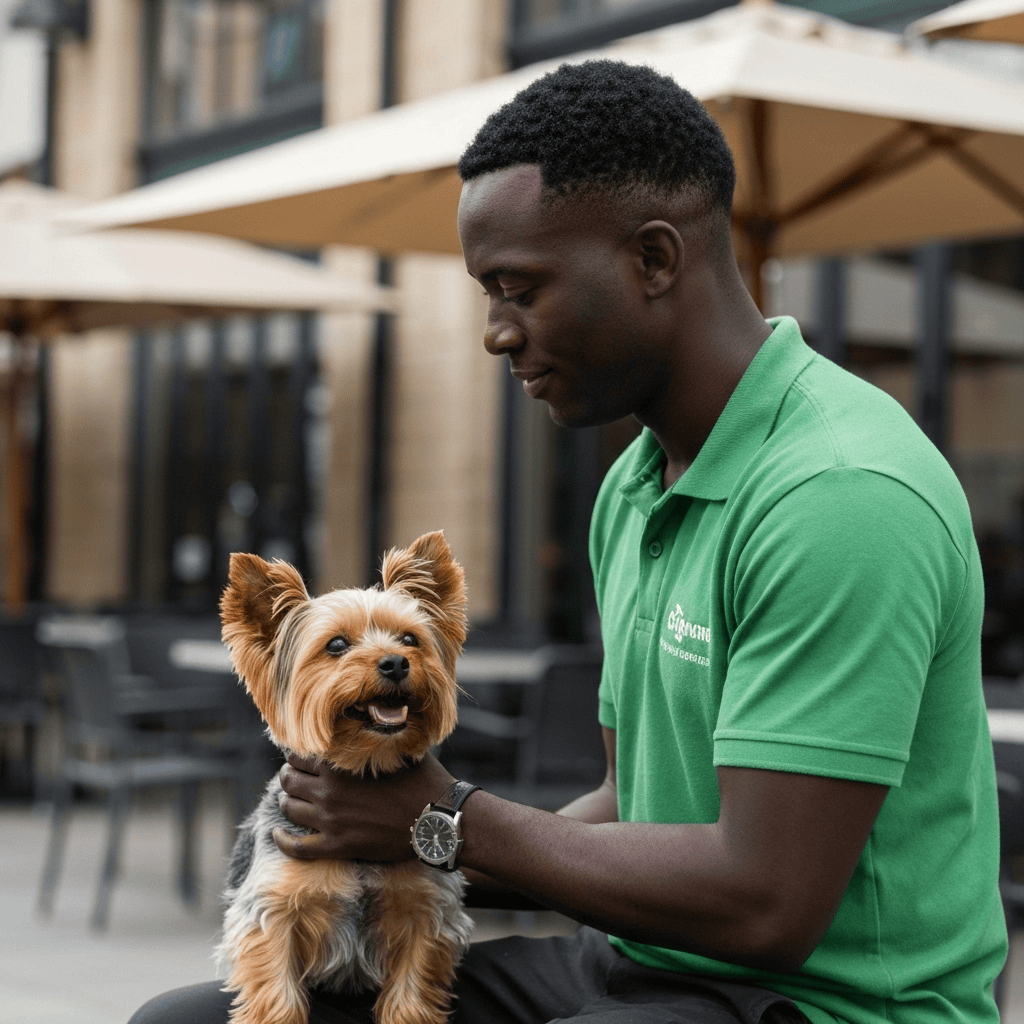Your Complete Guide to Choosing a Dog Trainer in Winston-Salem
When you’re walking your dog through Reynolda Village or along the Salem Lake trail, you want to feel confident they’ll listen when it matters. Finding the right trainer in Winston-Salem means looking for someone who understands both your dog’s needs and the reality of life in our city.
Whether you’re dealing with a puppy who needs to learn the basics or an older dog with specific behavior challenges, the trainer you choose should prepare your dog for real situations. That means navigating busy sidewalks in downtown, staying calm at Cobblestone Farmers Market, or walking politely past other dogs at Tanglewood Park.
How to Choose the Right Trainer
The best trainers in Winston-Salem use positive reinforcement methods that build your dog’s confidence rather than breaking it down. These approaches work because they teach your dog what you want them to do, not just what to avoid. You’ll see faster progress and your dog will actually enjoy learning.
When you’re comparing trainers, ask about their credentials. Look for certifications like CPDT-KA, KPA-CTP, or IAABC-CDBC. These programs require trainers to study learning theory, understand dog behavior, and follow ethical guidelines.
But credentials alone don’t tell the whole story. A good trainer should be able to explain their methods clearly and show you how they’ll adapt their approach to your specific situation. They should also have a plan for practicing in real-world locations around Winston-Salem once your dog is ready for that level of distraction.
If you prefer in-home dog training, make sure your trainer serves your neighborhood and has experience helping dogs transfer their new skills to different environments. The best trainers will eventually take your training sessions to places like the greenways or quieter areas of downtown to practice what you’ve learned at home.
For puppies, prioritize socialization and basic life skills over flashy tricks. Your puppy needs to learn how to handle the sounds of traffic on Trade Street, meet new people politely, and walk nicely on a leash before their first birthday. For dogs with behavior issues like reactivity or anxiety, look for trainers who use behavior modification techniques and will coordinate with your veterinarian when needed.
Common Dog Training Methods Explained

Positive reinforcement training is the foundation of modern dog training, and for good reason. When you reward behaviors you like, your dog learns faster and stays motivated to keep trying. This approach works especially well in busy environments like Winston-Salem, where your dog needs to focus on you despite all the interesting distractions around them.
Behavior modification goes deeper than basic training. If your dog is fearful, reactive, or showing signs of aggression, a qualified trainer will use techniques like desensitization and counter-conditioning to help change how your dog feels about their triggers. This process takes patience and expertise, but it’s the most effective way to address serious behavior problems.
Puppy training focuses on socialization during those critical first few months. Your puppy needs positive experiences with different surfaces, sounds, people, and other dogs. A good puppy class will teach bite inhibition, basic manners, and help you establish routines that work for your household.
Basic obedience covers the everyday skills every dog needs: sitting politely for greetings, walking without pulling, coming when called, and staying calm when asked to wait. These might seem simple, but they make the difference between a stressful walk and an enjoyable one.
Some trainers offer day training programs where they work with your dog during the day, then teach you how to maintain the progress at home. Board and train programs can jump-start training for busy families, but make sure any program includes thorough owner education so you can keep up the good work.
For specialized goals like service dog training or therapy dog certification, you’ll need a trainer with specific experience in these areas. These programs require advanced public access skills and careful temperament evaluation.
Local Rules and Practicalities in Winston-Salem and Forsyth County
Living in Winston-Salem means following local leash laws and being a good neighbor with your dog. The city requires dogs to be restrained when off your property, and Forsyth County Animal Services handles enforcement of animal control laws. You can find current information and resources at Forsyth County Animal Services.
North Carolina requires all dogs to have current rabies vaccination. Your trainer should understand these requirements and may ask for proof of vaccination before starting group classes. For complete vaccination guidelines, check vaccination requirements.
If you’re interested in training classes held in public parks, know that commercial activities often require permits and insurance. Professional trainers should handle these details, but it’s worth asking about their policies.
Most of our local parks welcome leashed dogs, including the extensive trail system at Salem Lake and the grounds at Tanglewood Park. The county operates designated off-leash areas at Tanglewood Park and Horizons Park, which can be great places to practice recall once your dog is ready.
Professional dog trainers in North Carolina aren’t required to have specific licenses, but responsible trainers carry liability insurance and maintain continuing education. If a trainer offers boarding services, additional permits may apply.
Average Cost of Dog Training in Winston-Salem (Updated for 2025)
Training costs in the Winston-Salem area reflect the trainer’s experience, the type of program, and where sessions take place. Here’s what local dog owners typically invest in professional training:
| Service Type | Average Cost |
|---|---|
| Group classes (4–6 weeks) | $150 – $275 |
| Private lessons (60–75 minutes) | $95 – $160 per session |
| Puppy classes (4–6 weeks) | $150 – $240 |
| Day training (trainer works dog + owner handoff) | $450 – $800 per week |
| Board and train (2–4 weeks) | $1,900 – $3,800 total |
| Behavior consultation (fear, reactivity) | $120 – $220 first session |
Many trainers offer package deals that reduce the per-session cost and help maintain consistency in your training program. Expect to pay more for trainers with advanced certifications like CTC or CBCC-KA, or for complex behavior modification work.
Most trainers include an initial consultation or phone call to discuss your goals and determine the best approach for your situation. Don’t hesitate to ask about payment plans or package options if the upfront cost is a concern.
Questions to Ask a Potential Dog Trainer
Before committing to a training program, you’ll want to understand how the trainer works and whether they’re a good fit for your dog. Here are the key questions to ask:
- What training methods do you use, and how do you keep sessions positive?
- What certifications or continuing education do you have?
- How will you customize the training to fit my dog’s personality and my goals?
- Do you offer group classes, private lessons, or day training, and what would work best for us?
- Where do you hold training sessions, and how do you introduce distractions?
- What’s included in your pricing, and do you have travel fees or cancellation policies?
- How will you teach me to maintain the training at home?
- For behavior problems, do you work with veterinarians or veterinary behaviorists?
- What should I expect for homework between sessions?
A good trainer will answer these questions clearly and help you understand what to expect throughout the training process.
Local Winston-Salem Resources for Dog Owners
Winston-Salem offers several great resources for dog owners who want to practice training skills or just enjoy time with their dogs:
The Tanglewood Park Dog Park in Clemmons provides separate areas for large and small dogs, along with water stations and waste disposal. Check current hours and fees at Forsyth County Parks.
Horizons Park Dog Park near Rural Hall offers a spacious off-leash area that’s perfect for practicing recall with dogs who are ready for that level of freedom. Details are available at Horizons Park.
The Salem Lake greenway provides a beautiful setting for leash training with mild distractions like joggers and cyclists. The paved trail is easy on both human and dog feet.
For official information about vaccination requirements, rabies clinics, and animal control issues, start with Forsyth County Animal Services and NC DHHS.

Common Questions About Dog Training in Winston-Salem
How much does in-home dog training cost?
Private in-home sessions typically range from $95 to $160 per visit in the Winston-Salem area. Most trainers offer package deals that bring down the per-session cost and provide better results through consistency.
Is in-home dog training worth it?
In-home training works especially well for house manners, dogs who get overwhelmed in group settings, and addressing behavior problems that happen in your specific environment. You’ll get personalized attention and can practice in the spaces where you actually live with your dog.
Can you pay someone to house train your dog?
Yes, many trainers offer potty training programs, day training, or board and train options that include house training. The key is making sure they teach you how to maintain the routine once your dog comes home or their program ends.
What is the 3-3-3 rule for dog training?
This guideline suggests that new dogs need about 3 days to decompress, 3 weeks to learn your routine, and 3 months to fully settle into their new home. It’s a helpful reminder to be patient and consistent, especially with rescue dogs who may need extra time to adjust.
How long will it take to see results?
Basic obedience skills like sit, stay, and loose leash walking typically take 4 to 8 weeks with consistent practice. Behavior modification for issues like fear, anxiety, or reactivity usually requires longer timelines and step-by-step progress toward your goals.
What should I bring to group classes?
Come prepared with a regular collar or harness (not a retractable leash), plenty of small, high-value treats, a water bowl, and proof of vaccinations if requested. Your trainer will let you know about any other specific equipment they recommend.
What’s the leash law in Winston-Salem?
Dogs must be restrained when off their owner’s property, and most public spaces require leashes except in designated off-leash areas. For current enforcement information and guidelines, check Forsyth County Animal Services.
Do I need a dog license in Winston-Salem?
There isn’t a separate dog licensing requirement, but all dogs must have current rabies vaccination and proper identification. Contact Animal Services for specific local procedures.
What vaccines does my dog need in North Carolina?
Rabies vaccination is required by state law. Your veterinarian may recommend additional vaccines based on your dog’s lifestyle and risk factors. Find current state guidelines at NC DHHS Rabies.
Do dog trainers need licenses in North Carolina?
No specific trainer license is required, but professional trainers typically carry liability insurance and maintain certifications like KPA-CTP or CPDT-KA to demonstrate their commitment to professional standards.
Where can I practice off-leash recall?
The fenced dog parks at Tanglewood Park and Horizons Park offer safe spaces to practice off-leash skills. Start during quieter times and only with dogs who have solid recall in easier environments first.
Which local parks allow training?
Most Forsyth County parks welcome leashed dogs, making them good practice locations for leash training and basic obedience. The designated off-leash areas at Tanglewood and Horizons parks allow more advanced training for dogs who are ready.
Are there trails where I can train my dog?
Salem Lake’s greenway is popular with dog owners for practicing loose leash walking and basic obedience around mild distractions. Always keep dogs leashed on public trails and clean up after them.
Finding the right dog trainer in Winston-Salem comes down to matching your needs with someone who uses humane methods and understands our local environment. Take time to ask questions, observe a class if possible, and choose someone who makes both you and your dog feel comfortable. With the right guidance and consistent practice, you’ll be able to enjoy all that Winston-Salem has to offer with a well-trained companion by your side.
